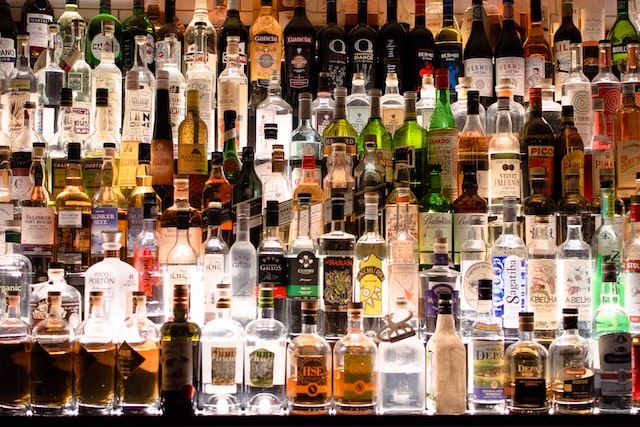There are roughly 37 million people in the United States with diabetes, and approximately 95% of them have type 2 diabetes. If left unchecked or treated, type 2 diabetes can cause severe health problems such as cardiovascular disease, vision loss, and kidney disease.
However, there is some good news for people with type 2 diabetes. Through changes in diet and lifestyle, people with type 2 diabetes can keep it under control and lead normal healthy lives without worrying about serious problems.
As researchers continue to find ways to help people with type 2 diabetes, many are looking at food and drinks as a way to combat the symptoms. Studies suggest that regularly having a glass of red wine may help delay the onset of some serious side effects of type 2 diabetes – or even prevent them.

Is it wise to have a glass of red wine a day? Let’s uncork some of the research that’s happening with red wine, the health benefits of this ancient yet still popular drink, and some of the more common side effects and risks associated with your favorite glass of vino.
Before you introduce any food, beverage, supplement, vitamin, or treatment for a disease such as diabetes, check with a medical professional to find out if wine is suitable for you or if it will have any adverse side effects with prescribed medications
What’s the Connection Between Red Wine for Diabetics
Diet and type 2 diabetes are intrinsically linked together. Since glucose comes from the food we eat, a person with diabetes will need to watch their diet carefully. To help prevent blood glucose spikes, they’ll have to monitor the number of carbohydrates in foods like pasta, bread, and refined sugars.
A person without diabetes can take insulin to help move glucose out of the bloodstream and into cells so it can provide energy. However, if you have type 2 diabetes, your body will resist the effects of insulin while at the same time being unable to produce enough insulin to overcome the resistance. The result is elevated glucose levels. Drinking red wine may create improved insulin resistance for people with diabetes.
Over time, a person with elevated glucose levels may have serious health problems like kidney disease, cardiovascular disease, and nerve damage. The one surefire way to combat the effects of elevated glucose levels, keep them at bay and prevent further health complications is to eat a nutrient-rich diet. But are all foods and beverages created equally? No, like some foods can adversely affect people with type 2 diabetes, other foods will be beneficial.
Blood Glucose Levels and Wine
Many doctors will recommend that people with type 2 diabetes avoid certain foods and alcoholic beverages high in carbohydrates and sugar. The most common beverage to avoid is alcohol. Most alcoholic drinks contain refined sugars, and every time you have one of these drinks, it can cause a spike in your blood glucose levels.
However, both red and white wine typically contain low amounts of sugar. It means drinking a glass of red or white wine won’t affect your glucose levels as much as a pre-mixed wine cooler manufactured with flavor and sweetener.
More Than Just Low Blood Sugar Levels
That evening glass of wine might even be helping you! As it turns out, when you drink your wine, you might be helping control your glucose levels. One of the liver’s primary functions is producing and releasing glucose, which also helps metabolize alcohol.
If you’re having a drink, your liver stops all functions for metabolizing alcohol. Instead, it will focus mainly on metabolizing glucose. It means that while the liver works to metabolize the alcohol, your glucose levels will remain relatively stable.
One thing to consider is that drinking wine on an empty stomach may lower glucose levels too much. So you must have your wine with a nutrient-rich and well-balanced meal for it to stabilize these levels.
The Health Benefits of Drinking Red Wine
Wine has been a popular drink in many countries over the past few thousand years. Many cultures believe you would receive both spiritual and physical healing properties when you drink wine in moderation.
According to research, there is some truth to those ancient beliefs. Let’s look at what those studies tell us about wine, its health benefits, and how it can help with type 2 diabetes.

Better Cardiovascular Health
Type 2 diabetes and cardiovascular disease go hand in hand. It can even trigger heart disease, a heart attack, or a stroke. A glass or two of red wine can positively affect increased HDL levels or good cholesterol.
This cholesterol helps remove the bad cholesterol from the sides of the blood vessel walls, increasing blood flow and possibly preventing further cardiovascular complications such as heart attacks, heart disease, and stroke.
It Reduces the Risk of Developing Type 2 Diabetes
A study from 2015 had participants drinking 150mL of red wine with a nutritious dinner over two years. They had reduced the risk of developing certain cardiometabolic conditions, including type 2 diabetes.
Boosts the Immune System
Wine consumption should never be a replacement for a healthy diet, but one small glass of red wine a day can give your immune system a boost. Drinking moderate amounts of red wine can ward off infections. However, increasing your drinking of alcohol like wine more than once a day could adversely affect your system.
Increases Bone Density
Since it contains high levels of silicone, daily red wine consumption may help increase bone mineral density. Stronger bones mean less risk of osteoporosis and other bone and teeth problems. Stick to moderate consumption of red wine for healthier, stronger bones.
Potential Risks of Drinking Red Wine When You Have Type 2 Diabetes?
Stick to Dry Wine
When it comes to controlling your alcohol intake, it is best to drink alcohol that is low in sugar. Wine has only about 0.6 grams of sugar per 100 grams of wine. It means that sticking to one drink of wine a day probably won’t make much of a difference in blood sugar.
However, people with diabetes who drink heavily or consume alcohol high in sugar will have to monitor their blood sugar or glucose levels carefully.
Creates Lower Blood Sugar Levels
Red wine might also create low blood sugar. This is true even for moderate drinkers. The effects of the red wine will last up to at least 24 hours, but the first hour is when the liver, which generally produces glucose, is busy trying to metabolize the alcohol.
Always eat a meal with your wine to help stabilize your blood sugar levels. And if you drink during exercise, you are at a higher risk of developing low blood sugar levels. If you are taking diabetes medicine and consuming alcohol like red wine, you can also lower your blood sugar levels.
Alcohol Abuse
Drinking a glass of vino is great, but only moderate drinkers will reap the health benefits. Those who drink excessively could develop an alcohol use disorder or alcohol abuse. Binge drinking sets the stage for addiction and the behaviors such as impaired judgment and mood swings that go with it.
Heart Disease Risks
Wine in moderation can help prevent cardiovascular diseases and provide heart disease control. Excessive drinking, even red wine, can raise a person’s blood pressure, strain the heart, and create all kinds of heart-related conditions.
How to Drink Red Wine For Better Health
You can do a few things to benefit from red wine’s numerous potential health benefits. Wine is still an alcoholic beverage and can negatively or positively affect your system depending on how you manage your drinking habits. Here are some general rules to avoid possible health risks but gain the maximum benefits for that glass of red wine.
Moderate Drinking
Keeping your alcohol consumption low is always a good idea. Over time, drinking alcohol in excess and regularly can be damaging to systems of the body like the liver and kidneys. Moderate red wine consumption is the key.
Stick to one glass of red wine and combine it with your food intake. Never drink wine on an empty stomach. A glass in the evening with a healthy Mediterranean-style diet, including fish and fresh vegetables, is ideal.
Keep the Glass Small
Wine glasses come in all shapes and sizes. Some novelty glasses can even hold an entire bottle of wine! However, drinking wine from a small glass is better than having an oversized glass of wine. And stick to just one small glass to keep your wine intake low. If you drink more than one small glass of red wine, you’ll increase your sugar intake and blood sugar levels.
Stay Away From Sweet Wines
Like any food, not all wines are created equal. In the red wine group alone, there can be massive differences. Some contain more tannins, while others have high sugar content. Avoid products like wine coolers and sweet dessert wines since they will only increase your sugar intake.
Stick to dry red wines with a low sugar count. Talk to your local wine shop clerk about some of the best red wine brands for people with diabetes. Or talk to your doctor about which red wine brands are suitable for type 2 diabetics.

Choose Consuming Red Wine Over Any Other Alcoholic Beverage
Consuming wine means sticking to red wine. White wine just doesn’t have the same protective health benefits since it contains lower polyphenols.
Polyphenols are reducing agents and, when combined with other agents such as vitamin C, vitamin E, carotenoids, or antioxidants, help protect the body’s tissues against oxidative stress. These stresses are linked to cancers, coronary heart disease, and inflammation.
Like white wines, avoid other alcohols like beer, whiskey, rum, vodka, and gin. These types of alcohol all have sugar and will increase blood sugar levels. If you have diabetes, even moderate alcohol consumption with these types of alcohol is not ideal. The same applies to those following strict calorie restrictions in their diet.

Carefully Monitor Your Glucose Levels
Alcoholic beverages have a lingering effect on your blood sugar levels that can last several hours. By carefully monitoring your blood sugar levels, you’ll know what effect moderate red wine intake has on your system. By keeping things in check, you’ll have better diabetes management and reduce the risk caused by diabetes complications.
Avoid Drinking Wine with Certain Medications
Wine and diabetes might be a great combination to fight the onset of diabetes, but drinking wine while taking insulin or diabetes medications is not a good idea. Depending on the medication, drinking alcohol with medication can lead to heart attacks, heart failure, and death. Always talk to your doctor if you can drink wine with your medicine.
Conclusion
Red wine in moderate amounts is good! Casual wine drinkers develop less cardiovascular disease, lower blood pressure, lower blood sugar, and less of a risk of diabetes complications. However, wine might not produce the same symptoms for some. Consult a medical professional to see if having a glass of vino at night with your dinner is good for you.




